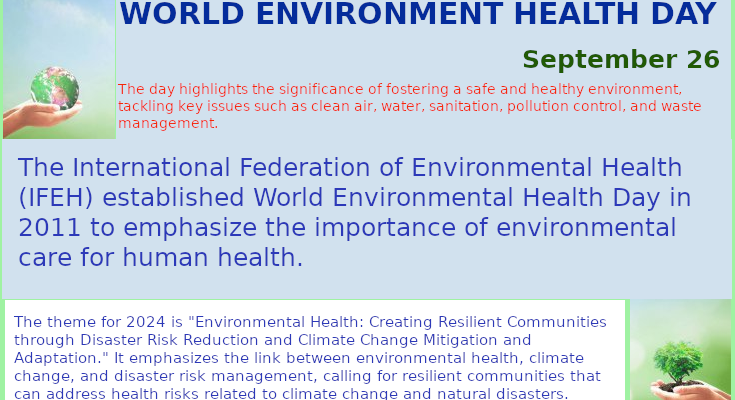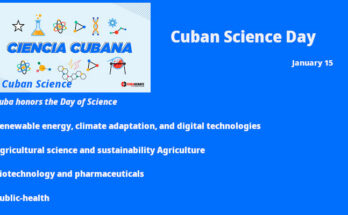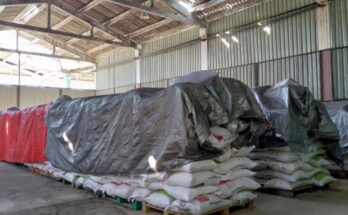In order to be healthy, it is necessary to live in a sustainable ecosystem that guarantees life, to ensure current and future generations a healthy environment for their development.
Every September 26 is commemorated as World Environmental Health Day, so everyone is urged to take care of the environment and the planet, to preserve all species, flora and fauna, knowing that we all live in it.
Cuba’s projections for 2030 include the fulfillment of the Sustainable Development Goals, which include guaranteeing food security, protecting ecosystems and the environment in general.
The loss of biodiversity is a fact. It cannot be colored with conspiracy theories, geopolitics or any other attempt to ignore the numbers of endangered species, destroyed habitats and the diminishing resources necessary for our permanence on Earth.
Despite what may be argued, the problem affects not only the well-being of the planet, but also the human being. It is more than environmental, it harms the economy, development, increases hunger and poverty in the world. In conditions of scarcity, conflicts proliferate as well as forced migrations.
However, during these times of health crises, there are also alarm bells ringing about how the deterioration and poor conditions of biodiversity affect people’s health.
The World Economic Forum’s Global Risk 2020 report states that 70 percent of the drugs used to treat cancer come from nature. More than half of the world’s GDP, which is $44 trillion, depends on nature.
Given this reality, Cuba defends the protection of the environment and works for the sake of sustainable development.
Notwithstanding the economic, commercial and financial blockade imposed by the United States, the Cuban government maintains as far as possible its plans to ensure biodiversity and the well-being of the population.
Cuba would have more access to financial resources, inputs and technologies for these purposes without the blockade and fewer limitations in the development of its international cooperation, especially South-South cooperation.
Environmental health would suffer less without a blockade and, consequently, human beings would be more protected from a sanitary point of view.




